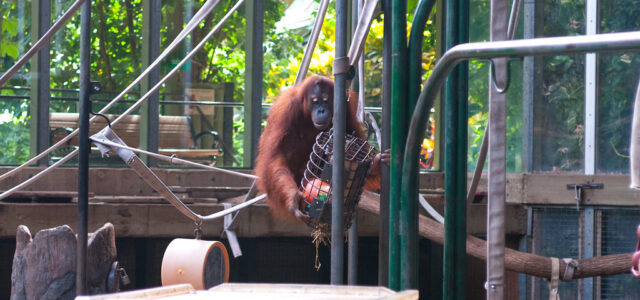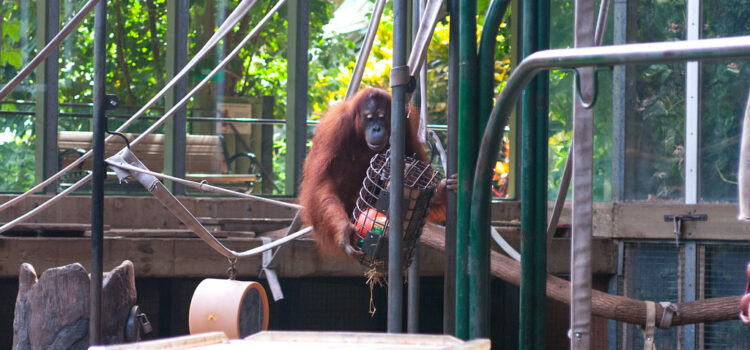

Toronto Zoo keeps animal welfare top priority during pandemic closure
NewsToronto Mar 5, 2021 Jace Lo Giudice

By Jace Lo Guidice
The Toronto Zoo is working to care for its animals and to stay connected to the community despite the prolonged state of the province-wide lockdown.
Although the zoo is closed to the public because of the pandemic, the operation relies on the generosity and interest of the community to help staff care for the animals.
“The challenge that gets overlooked frequently has been our team just dealing with the ongoing ambiguity of it, not knowing when it’s going to end, that chronic uncertainty for a lot of us when this hit,” Toronto Zoo CEO Dolf De Jong says. “I’m so proud of our team, we were ready in January of last year, we already started taking steps as far as stocking up on additional food and resources when we were worried about the supply chain, we took steps to work at home and we just exploded out of the gate running.”
In the midst of the second wave of province-wide lockdown restrictions, the Toronto Zoo has had its struggles like many businesses across Ontario, says De Jong, but has found unique and innovative ways to continue to educate its community and keep its guests, staff, and animals safe.
Unlike most other businesses, however, the zoo has thousands of mouths relying on it to be fed. With the income for food normally generated by parking fees lost during the pandemic, the zoo began its initiative Zoo Food for Life which relies on donations from the community to provide the animals with a continued balanced and nutritious diet.
The zoo is also exercising particular caution around certain animals which have been found capable of contracting the COVID-19 virus, including the use of new plexiglass barriers, personal protective equipment, and physical distancing with the animals.
“COVID has been so humbling as far as people to reflect on what we don’t know, there’s no easy answers on these pieces you know, you see disease making the jump between species, you see the pace that the transmission takes that it’s at right now then you see variants moving even faster,” De Jong says. “We’re all learning on this journey and in our context, we’ve got to protect those animals because there’s not that many individuals out there and we don’t want to be taking any risk learning the wrong lessons if we’re careless.”
In order to raise awareness, the zoo continues to offer virtual free and paid programming through Facebook Live and other social media.
However, it doesn’t solely rely on public generosity and engagement. Government funds continue to supplement the zoo and offer a safety net in uncertain times.
“We put in place significant cost-containment measures, as an agency of the city of Toronto we were grateful for support as required to ensure we continued to meet all accreditation standards,” says Toronto city councillor and chair of the board of management of the Toronto Zoo Paul Ainslie.
De Jong says the zoo remains “cautiously optimistic” about reopening in the spring and is laser-focused on protecting their animals above all else when the time comes.






